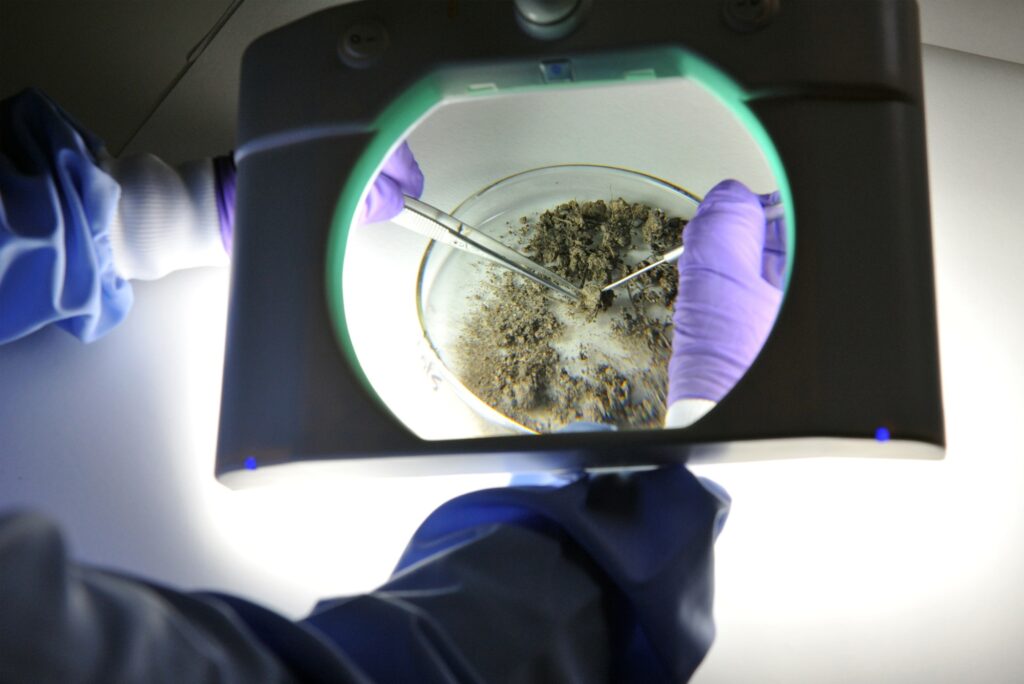Warfare threatening environmental health crisis in Syria
The James Hutton Institute in Aberdeen is supporting research that suggests 12 years of warfare in Northwest Syria is contaminating soils, posing risks to agriculture and food security in a region already under critical stress.
The research by a team of Syrian researchers, funded by the charity Cara (the Council for At-Risk Academics), is the first to measure soil contamination in Northwest Syria since the start of the Syrian conflict in 2011.
Hutton forensic soil scientist Professor Lorna Dawson supported the work by examining and analysing soil samples collected by Syrian researchers at her laboratories in Aberdeen.
The project was also supported by academics from Sheffield Hallam University, University of South Wales, Liverpool John Moores University and Robert Gordon University.
The results showed widespread contamination with potentially toxic elements such as cadmium and arsenic. The highest levels recorded were in districts between Aleppo and the Turkish border, an area which has seen some of the most severe impacts of the war.
Soil contamination at specific locations can be caused directly by the conflict, for example via military activity and explosive weapons, but the study’s findings of raised levels of contaminants across the region highlight the indirect risks to the environment from the collapse of the economy and infrastructure in the region.
Breakdown in environmental regulation of industries, damage to sanitation infrastructure, and lack of agricultural fertilisers has also caused many farmers to irrigate fields using water supplies polluted by sewage and industrial wastes.
“Conflicts can have devastating effects in both urban and rural areas of countries, often in addition to natural hazards, such as the earthquakes as on 6 February 2023 in Syria”
Professor Lorna Dawson

As well as the implications for health and food safety for the millions of internally displaced people living in the region, the accumulation of contaminants in the soil threatens the longer-term recovery of agriculture in the region, which already struggles with extreme food insecurity.
“Conflicts can have devastating effects in both urban and rural areas of countries, often in addition to natural hazards, such as the earthquakes as on 6 February 2023 in Syria,” says Professor Dawson.
“To date very little is known about the impact of conflict on soil geochemistry and pollution. The findings of this research outline potential geochemical concerns, such as high levels of cadmium, arsenic and cobalt in a corridor around Sarmada to the west of Aleppo, that exceed EU thresholds.
“This is an area which has seen some of the most intense conflict-related impacts. Combined with the influence of these many other factors, this can have a devastating impact on agriculture, water, sanitation and human health.”
Dr Jonathan Bridge, Academic Mentor on the project from Sheffield Hallam University, said: “Twelve years of war have created an environmental crisis in Northwest Syria as well as a humanitarian one. Our findings show an alarming deterioration in soil quality across NW Syria. Urgent action is required to assess the level of threat to human health and the agricultural economy both now and in the longer term.
“Our results highlight the crucial work of Cara’s Syria Programme enabling academics and associated laboratories in the UK to support Syrian colleagues to pursue vital social, cultural and environmental research in the region. It has been a privilege to work with the Syrian team in the most difficult circumstances imaginable.”
Kate Robertson, Cara’s Middle East Advisor, said: “These research collaborations are not only invaluable in themselves, but they also allow Cara to connect Syrian academics to colleagues within the wider international academic community, enabling them to reclaim their academic identities and continue to contribute from exile.
“We are indebted to the many who, like Dr Jon Bridge (Sheffield Hallam University) and Professor Duncan Pirrie (University of South Wales), give selflessly of their time in an act of solidarity.”
Press and media enquiries:
Elaine Maslin, Media Officer, The James Hutton Institute elaine.maslin@hutton.ac.uk, tel: +44 (0)1224 395076 or +44 (0)7977 805808
November 2, 2023
